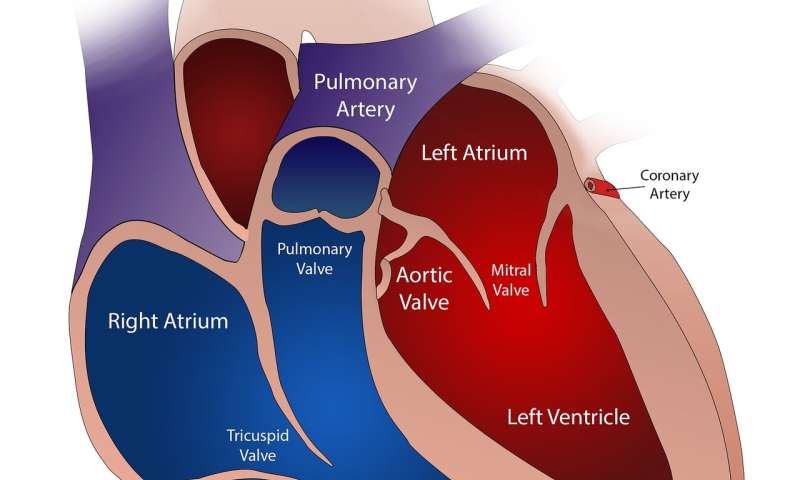
An international team of researchers has developed a way to use artificial intelligence to predict the risk of a patient developing cardiovascular disease. In their paper published in the journal Nature Biological Engineering, the group describes using retinal blood vessel scans as a data-source for a deep learning system to teach it to recognize the signs of cardiovascular disease in people.
For over 100 years, doctors have peered into the eyes of patients looking for changes in retinal vasculature—blood vessels in the retina that can reflect the impact of high blood pressure over a period of time. Such an impact can be an indicator of impending cardiovascular disease. Over time, medical scientists have developed instruments that allow eye doctors to get a better look at the parts of the eye most susceptible to damage from hypertension and have used them as a part of a process to diagnose patients that are likely to develop the disease. But such tools still require a medical professional to make the final call. In this new effort, the researchers have taught an AI system to recognize the same sorts of symptoms without the need for human intervention.
The work by the team involved training an AI system to spot markers for cardiovascular disease by studying retinal vasculature scans (looking for degree of retinal arteriolar narrowing, for example) along with data describing markers for a given patient. But for such a system to be able to do this work, it must first learn to recognize markers by studying thousands of images along with data highlighting associated markers for each patient. In this case, the researchers trained the system on over 70,000 such images from people with diverse backgrounds.
To test the accuracy of the system, the researchers compared results from their AI system with diagnoses given by doctors who used traditional testing methods to diagnose cardiovascular disease risk, e.g., diabetes, obesity, BMI, cholesterol and glycated hemoglobin levels. The researchers claim their system outperformed the experts based on patient tracking after testing.
Source: Read Full Article
